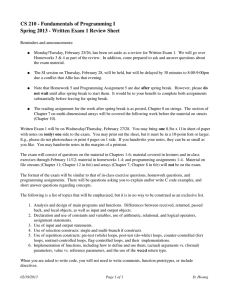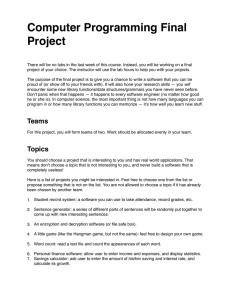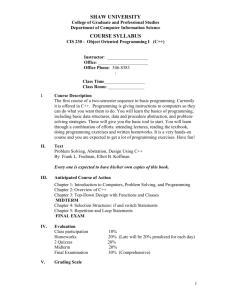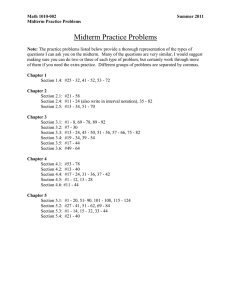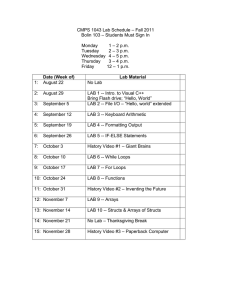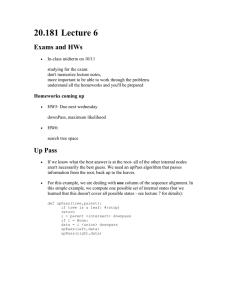CS 210 Fundamentals of Programming I Spring 2016 Midterm Written Exam Review Sheet
advertisement
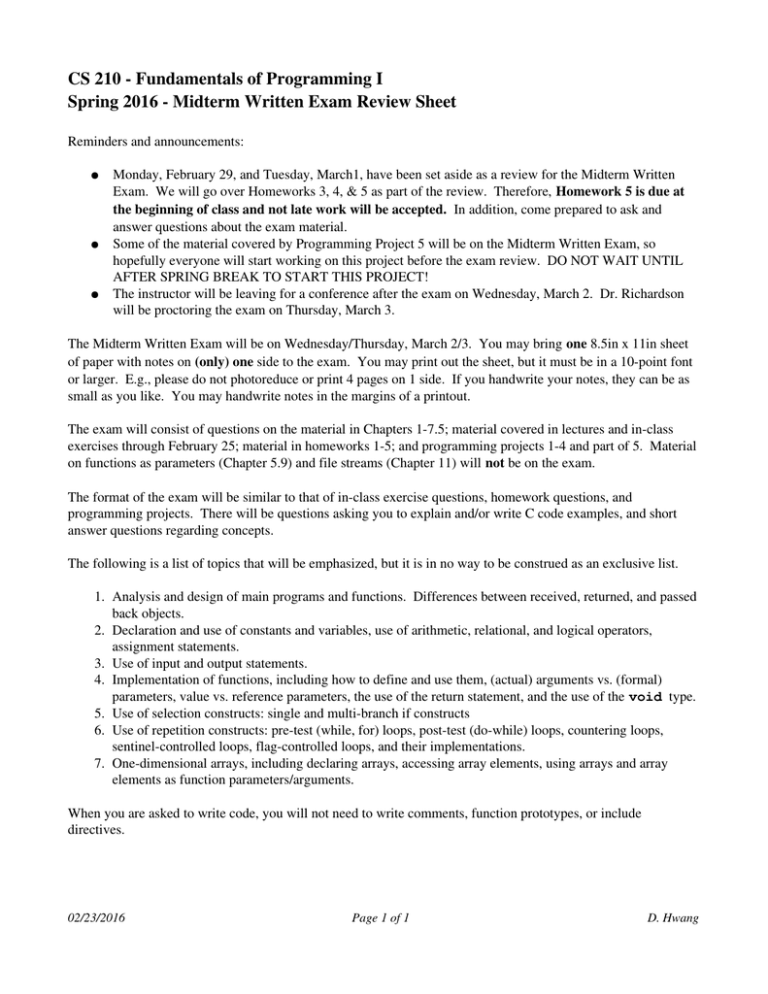
CS 210 ­ Fundamentals of Programming I Spring 2016 ­ Midterm Written Exam Review Sheet Reminders and announcements: Monday, February 29, and Tuesday, March1, have been set aside as a review for the Midterm Written Exam. We will go over Homeworks 3, 4, & 5 as part of the review. Therefore, Homework 5 is due at the beginning of class and not late work will be accepted. In addition, come prepared to ask and answer questions about the exam material. ● Some of the material covered by Programming Project 5 will be on the Midterm Written Exam, so hopefully everyone will start working on this project before the exam review. DO NOT WAIT UNTIL AFTER SPRING BREAK TO START THIS PROJECT! ● The instructor will be leaving for a conference after the exam on Wednesday, March 2. Dr. Richardson will be proctoring the exam on Thursday, March 3. ● The Midterm Written Exam will be on Wednesday/Thursday, March 2/3. You may bring one 8.5in x 11in sheet of paper with notes on (only) one side to the exam. You may print out the sheet, but it must be in a 10­point font or larger. E.g., please do not photoreduce or print 4 pages on 1 side. If you handwrite your notes, they can be as small as you like. You may handwrite notes in the margins of a printout. The exam will consist of questions on the material in Chapters 1­7.5; material covered in lectures and in­class exercises through February 25; material in homeworks 1­5; and programming projects 1­4 and part of 5. Material on functions as parameters (Chapter 5.9) and file streams (Chapter 11) will not be on the exam. The format of the exam will be similar to that of in­class exercise questions, homework questions, and programming projects. There will be questions asking you to explain and/or write C code examples, and short answer questions regarding concepts. The following is a list of topics that will be emphasized, but it is in no way to be construed as an exclusive list. 1. Analysis and design of main programs and functions. Differences between received, returned, and passed back objects. 2. Declaration and use of constants and variables, use of arithmetic, relational, and logical operators, assignment statements. 3. Use of input and output statements. 4. Implementation of functions, including how to define and use them, (actual) arguments vs. (formal) parameters, value vs. reference parameters, the use of the return statement, and the use of the void type. 5. Use of selection constructs: single and multi­branch if constructs 6. Use of repetition constructs: pre­test (while, for) loops, post­test (do­while) loops, countering loops, sentinel­controlled loops, flag­controlled loops, and their implementations. 7. One­dimensional arrays, including declaring arrays, accessing array elements, using arrays and array elements as function parameters/arguments. When you are asked to write code, you will not need to write comments, function prototypes, or include directives. 02/23/2016 Page 1 of 1 D. Hwang
